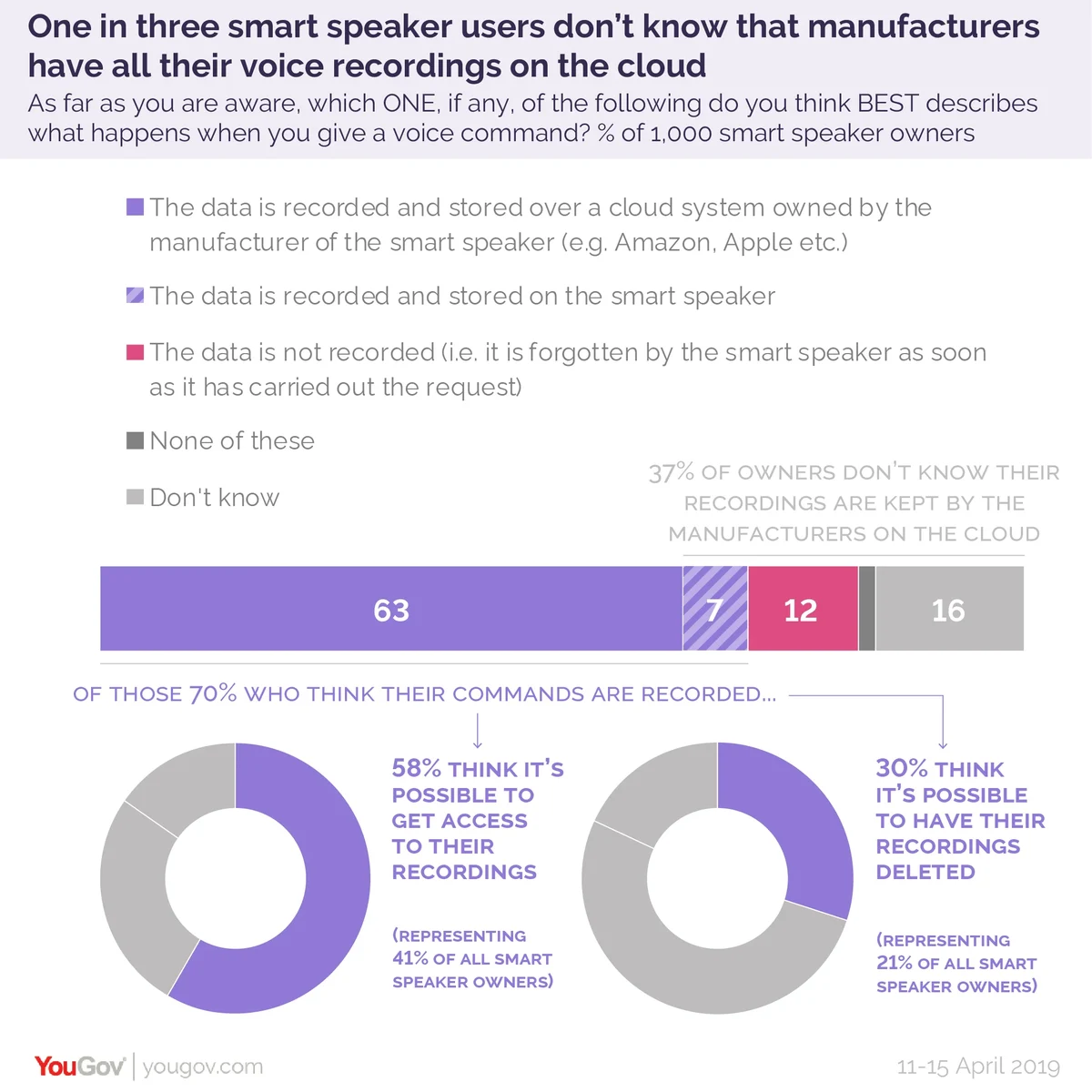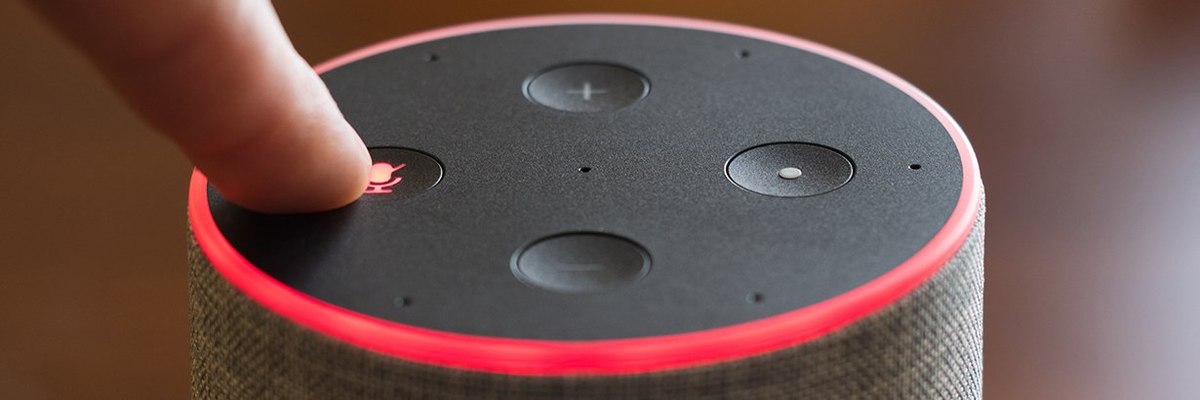Even fewer are aware of how they personally can interact with their data
Last month it emerged that staff at Amazon, Apple and Google listen to voice recordings made by smart speakers of their owners. The news will come as a surprise to many, as a new YouGov Field and Tab survey reveals that one in three owners of such devices aren’t aware that their voice commands are sent to the companies in the first place.
Asked what they thought happened to the voice commands they gave to their smart speaker, 37% either gave an incorrect answer or said that they didn’t know.
Some owners (7%) believe that the commands are stored on the smart speaker itself, while a further 12% think the data isn’t recorded in the first place, and that it’s forgotten by the speaker as soon as the command has been carried out.
A further 16% answered “don’t know”, while 2% didn’t think any of the answer options we gave them were true.
By contrast, 63% correctly stated that the data is recorded and stored over a cloud system owned by the manufacturer of the smart speaker.

Even more users are unaware of how they can interact with their recordings
Of those who think that voice commands are saved in some form (either correctly – over the cloud – or incorrectly – on the device), a majority of 58% believe it is possible to subsequently access those recordings. In this they are correct. This does, however, mean that only about 41% of all smart speaker owners are aware that they can get their hands on their recordings if necessary.
By contrast, those who know that voice commands are stored are far less sure whether or not they have the power to have them deleted. Half (52%) answered “don’t know” – a further 30% think they can and 18% think they can’t. This means that, as a proportion of all smart speaker owners, only 21% believe it’s possible to have the recordings of their voice commands deleted.
Whether or not they are right in that view is another question. While Amazon, Google and Apple (which between them account for more than 90% of smart speaker users) seemingly allow you to delete your recording through your account, an examination of the terms and conditions of these services suggests that this simply deletes them from your view, and that data is in fact retained by the companies for an unspecified amount of time.
Most smart speaker owners don’t believe they could be tracked down using their recordings – but they could be in for a nasty surprise
Back in December it emerged that a man in Germany was accidentally sent 1,700 voice recordings from someone else’s Amazon Alexa after he had made a request for personal data relating to himself under GDPR rules.
After not hearing back from Amazon when he flagged their mistake, the man passed the recordings to the German magazine c’t. From the voice recordings journalists at the publication were able to identify not only the individual who had made them, but also the female companion he lived with, and to top it off they said it was in fact “fairly easy” to do so.
Most British smart speaker users deny that in the same situation someone would be able to identify them by the same means. The majority (57%) believe someone armed with their smart speaker voice recordings would not be able to identify them – only 22% believe that information would be enough to enable someone to track them down.
It is of course entirely possible that many users are right to think that the nature of the commands they give their device are not enough to identify them – the user in Germany gave commands that included the name of friends and requests for weather forecasts in their local area – but the revelations may nevertheless provide a nasty wake-up call for smart speaker users.
Photo: Getty










